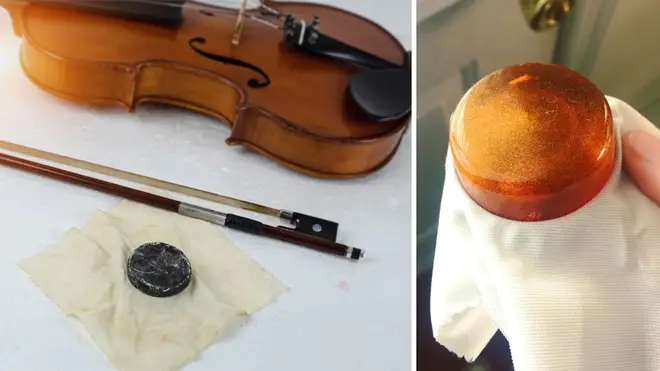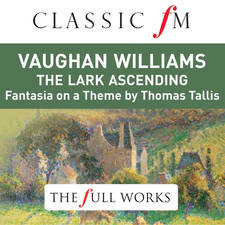What the heck is rosin – and why do violinists need it?
24 January 2020, 17:13 | Updated: 24 January 2020, 17:16

Imagine a violinist in full flow: bow arm flying, hair flicking and rosin specks everywhere. But what does this strange, powdery substance actually do to violin bows?
If you have ever tried to google ‘violin rosin’, you’ll know there are a few questions flying around about rosin.
So, we’re here to answer them (and yes, rosin can be a bit sticky).

What is rosin made of?
Rosin is a solid form of resin, the sticky substance that comes from trees that is not unlike sap. But while sap is used to make syrup and medicines, resin is used to make things like varnish and glazes.
Violin rosin is made by heating fresh liquid resin, until it becomes solid. It smells a bit like pine and has a glassy, orange look.
It also has a very brittle texture, which means that as soon as you accidentally drop it onto a hard floor, it can shatter like glass (the bugbear of every clumsy string player).
You can also buy Magic Rosin blocks, which are made with a customised image printed on paper, with rosin poured over the top.
They make a great present for your string-playing friends.
Sure, but why do string players need rosin?
Here’s a video of a violinist playing with and without rosin:

Violin Bows Without and With Rosin
Without rosin applied to the bow hair, there is no friction between the bow and the strings – so the sound is barely audible. The rosin creates friction, allowing the bow to grip the strings and make them vibrate more clearly.
Violinists and violists tend to use a lighter rosin for their instruments, while darker rosins are used for cellos and double basses.
Most string players apply rosin every time they play – but that isn't actually necessary. A stroke or two of rosin can last for at least a few hours of playing time.
What else is it used for?
Banjo players can apply violin rosin to the bridge of their instrument to stop it moving around during vigorous playing.
But rosin isn’t just for instrumentalists: ballet dancers use it on their shoes to reduce slipping; gymnasts use it to improve grip; and in baseball pitching and ten-pin bowling, players often carry a small cloth bag of powdered rosin for better ball control.
Is rosin toxic?
Well, you probably shouldn’t eat it – but evidence shows that rosin has minimal toxicity.
However, it is highly flammable and burns with a smoky flame, so maybe don’t try making it at home, like this guy did...

























